
Morocco Quantum Day | May 29, 2021
The aim of this event is to raise awareness about Quantum Computing technology, provide a brief overview of what is going on in laboratories around the world, and promote the sharing of ideas and discoveries on the possibilities and challenges of quantum information. This event will also include an opportunity to discuss current and future cooperation opportunities with other nations. Morocco Quantum Day is organized by QMorocco.
Date: Saturday, May 29, 2021 (Virtually via Zoom)
The lectures will be in Arabic, English, or French.
Organizing committee:
- H. Sennouni (Senior Information Security Consultant, Paris, France)
- H. Adnani (Mohammed V Univ, Rabat, Morocco)
- Z. Dahbi (Mohammed V Univ, Rabat, Morocco)
- A. Slaoui (Mohammed V Univ, Rabat, Morocco)
Agenda
| Start Time | End Time | Activity/Topic | Speaker |
| 14:00 pm | 14:10 pm | Welcome speech | Mr. Hassane Sennouni |
| 14:10 pm | 14:40 pm | Quantum computing: the missing link | Dr. Najwa Sidqi |
| 14:40 pm | 14:45 pm | Q&A session | |
| 14:45 pm | 15:15 pm | Moving quantum forward in Africa | Mr. Farai Mazhandu |
| 15:15 pm | 15:20 pm | Q&A session | |
| 15:20 pm | 15:50 pm | Quantum in Telecom; The Community & Workforce | Mr. Abdulmalek Baitulmal |
| 15:50 pm | 15:55 pm | Q&A session | |
| 15:55 pm | 16:25 pm | Training and research in Quantum Information and Quantum Technologies in Tunisia | Prof. Mourad Telmini |
| 16:25 pm | 16:30 pm | Q&A session | |
| 16:30 pm | 17:00 pm | Quantum Darwinism and the inevitable classicality of open systems | Dr. Akram Touil |
| 17:00 pm | 17:05 pm | Q&A session | |
| 17:05 pm | 17:35 pm | Universal quantum computation with mechanical oscillators | Prof. Oussama Houhou |
| 17:35 pm | 17:40 pm | Q&A session | |
| 17:40 pm | 18:10 pm | Non-classical computing problems: Toward novel type of quantum computing problems | Dr. Mohammed Zidan |
| 18:10 pm | 18:15 pm | Q&A session |
List of Speakers
Dr. Najwa Sidqi | Knowledge Transfer Manager – Knowledge Transfer Network (KTN), United Kingdom
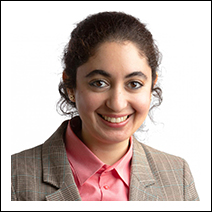
TITLE:
Quantum computing: the missing link.
Abstract:
Quantum computing is the most intriguing and popular topic when it comes to quantum technologies. With a huge value for several end user sectors and enabling extraordinary computing and data storage capabilities, the quantum computing market is expected to grow to USD 1.7 billion by 2026. With an increasing interest and enthusiasm for quantum computing and an ever growing community, navigating the landscape can become very challenging. In this talk, I invite you to see quantum computing through the knowledge manager lens. Together, we will explore the wider quantum computing landscape with its challenges and opportunities and discuss the importance of my role for stakeholder management and linking people.
Mr. Farai Mazhandu | President, OneQuantum Africa, Zimbabwe
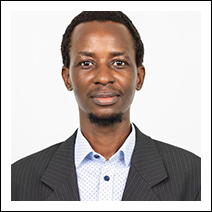
TITLE:
Moving quantum forward in Africa.
Abstract:
Africa is the stepchild of innovation and wealth. Yet, over the last decade or so, it has leveraged its underdog position to leapfrog many challenges that the west tackled more cautiously – a mobile-enabled economy in many parts of Africa bypassed the need for traditional infrastructure. Microloans power many individual entrepreneurs and raise them out of poverty. Digital jobs were prevalent before the West adopted them. Now, Quantum Tech brings the opportunity for another jump in growth, wealth, and opportunities. This is what our OneQuantum community promotes – equal opportunity for all – and, led by Africans to provide a stage for scientists, entrepreneurs, and investors in the continent to gather pace around this vision. Leadership in Quantum Tech coming out of Africa. A reality today.
Mr. Abdulmalek Baitulmal | The Libyan Organization for Quantum Technologies, Tripoli, Libya
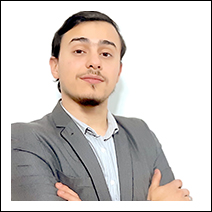
TITLE:
Quantum in Telecom; The Community & Workforce.
Abstract:
Addressing the obstacles that our communities are facing to build the skills & the know-how, as well as covering the entrepreneurs points of view.
This talk is structured as follows:
● Why Quantum & it’s Community?
● Overcoming the Educational Barriers
● The Workforce Awareness
● Establishment of the Ecosystem
Prof. Mourad Telmini | University of Tunis El Manar, Tunis, Tunisia
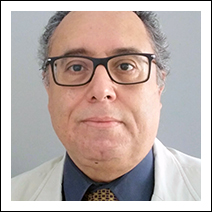
TITLE:
Training and research in Quantum Information and Quantum Technologies in Tunisia.
Abstract:
In this talk, we present an overview of the training and research activities in the fields of Quantum Information and Quantum Technologies in Tunisia. We will present our experience in introducing advanced Quantum mechanics lectures as well as specific other courses like “Ultra-cold atoms” and “Quantum Information and Quantum computing” in the curriculum of the master degree in physics at University of Tunis El Manar. We will discuss the opportunities and the challenges related to research and Development in these emerging fields and introduce the Tunisian Quantum community as well as its current and future collaborations with other countries in Africa and beyond”.
Dr. Akram Touil | University of Maryland, Baltimore County, Baltimore, Maryland 21250, USA
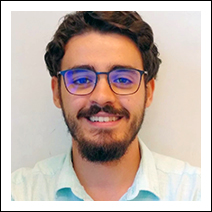
TITLE:
Quantum Darwinism and the inevitable classicality of open systems.
Abstract:
Understanding everyday observations of our classical world from seemingly peculiar quantum principles is a fundamental problem. We address it by relying on the insights of quantum Darwinism: We study the emergence of objective classical reality in the example of a central spin undergoing decoherence in a many-spin environment. The system-environment interactions are modeled by imperfect c-not (or “c-maybe”) operations, which enables us to tune and quantify the reliability with which the environment monitors the central spin. We derive analytic expressions for the quantum mutual information, Holevo bound, as well as quantum discord between the central spin and an arbitrary fragment of the environment. We consider information extracted by measurements of either the system or collection of environment spins — environment fragments. We show that agents will inevitably reach the classical plateau (that assures emergence of the consensus about classical reality of the inferred states) by intercepting sufficiently large fragments of the environment, also in the realistic case of non-ideal measurements. We also compute mutual information between two fragments of the environment. This corresponds to the situation responsible for emergence of the objective classical reality from within our quantum Universe where observers find out about the systems of interest by eavesdropping on independent environment fragments.
Prof. Oussama Houhou | University of Medea, Medea 26000, Algeria
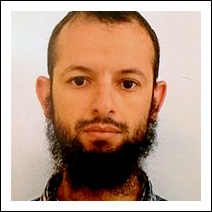
TITLE:
Universal quantum computation with mechanical oscillators.
Abstract:
Quantum computers are information processing devices that use the laws of quantum mechanics in both information encoding and processing. Many systems had been proposed for quantum computing, and one of the promising platforms are mechanical oscillators. Here, I introduce an integral protocol for universal quantum computation using continuous variables bosonic systems, namely mechanical oscillators. The protocol has two phases: First, a multi-mode entangled and non-Gaussian quantum state consisting of a cluster of cubic-phase states is dissipatively prepared and obtained as the steady state of the system. Then, in the next phase, the actual quantum computations are performed via a series of measurements on the different mechanical modes of the system (measurement-based quantum computation). Every measurement operation is implemented by continuously monitoring the output field in an optomechanical setup. The merit of protocol introduced here is that arbitrary unitary operations (i.e. universal quantum computation) can be implemented by performing Gaussian measurements only, which are regarded easy to implement in nowadays experiments. This paves the way towards solid-state based quantum computers using mechanical oscillators.
Dr. Mohammed Zidan | Hurghada Faculty of Computers and Artificial Intelligence, Egypt
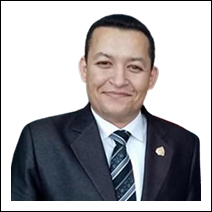
TITLE:
Non-classical computing problems: Toward novel type of quantum computing problems.
Abstract:
Quantum teleportation draws our attention to propose a new type of problems which can not be solved using classical computers. In this talk, we will explain one of these problems. Concretely, by extending the definition of Deutsch’s problem to decide whether a black box applied on a given unknown qubit, such that, is constant or balanced Boolean function, besides, estimating some parameters of the unknown qubit. Although this problem is very simple, it can not be solved using classical computers, because qubit can not be implemented physically using classical computers. A novel quantum algorithm based on the principle of entanglement measure is proposed to solve this problem.
